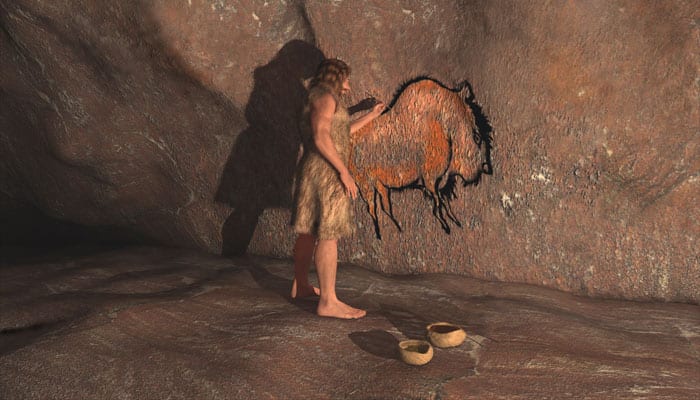New York: The total dependence of Neanderthals on large animals to satisfy their fat and protein needs may provide a clue to their eventual extinction, say researchers.
Homo sapiens, the ancestor of modern humans, shared the planet with Neanderthals, a close, heavy-set relative that dwelled almost exclusively in Ice-Age Europe, until some 40,000 years ago.
The extinction of Neanderthals took place at the same time as the beginning of the demise of giant animals or "Megafauna" in Europe, the researchers pointed out.
Neanderthals were similar to Homo sapiens, with whom they sometimes mated -- but they were different, too. Among these many differences, Neanderthals were shorter and stockier, with wider pelvises and rib-cages than their modern human counterparts.
The study by researchers at Tel Aviv University in Israel found that the Ice-Age diet -- a high-protein intake of large animals -- triggered physical changes in Neanderthals, namely a larger ribcage and a wider pelvis.
According to the research, the bell-shaped Neanderthal ribcage or thorax had to evolve to accommodate a larger liver, the organ responsible for metabolising great quantities of protein into energy.
This heightened metabolism also required an expanded renal system (enlarged bladder and kidneys) to remove large amounts of toxic urea, possibly resulting in a wide Neanderthal pelvis.
"The anatomical differences between the thoraxes and pelvises of Homo sapiens and Neanderthals have been well known for many years, but now we're approaching it from a new angle -- diet," said professor Avi Gopher, and colleagues.
The findings were published in the American Journal of Physical Anthropology.
"During harsh Ice-Age winters, carbohydrates were scarce and fat was in limited supply. But large game, the typical prey of the Neanderthal, thrived," study co-author Miki Ben-Dor explained.
"This situation triggered an evolutionary adaptation to a high-protein diet -- an enlarged liver, expanded renal system and their corresponding morphological manifestations. All of these contributed to the Neanderthal evolutionary process," Ben-Dor noted.
According to the researchers, the total dependence of Neanderthals on high-protein diet might have played a role in their eventual extinction.
















